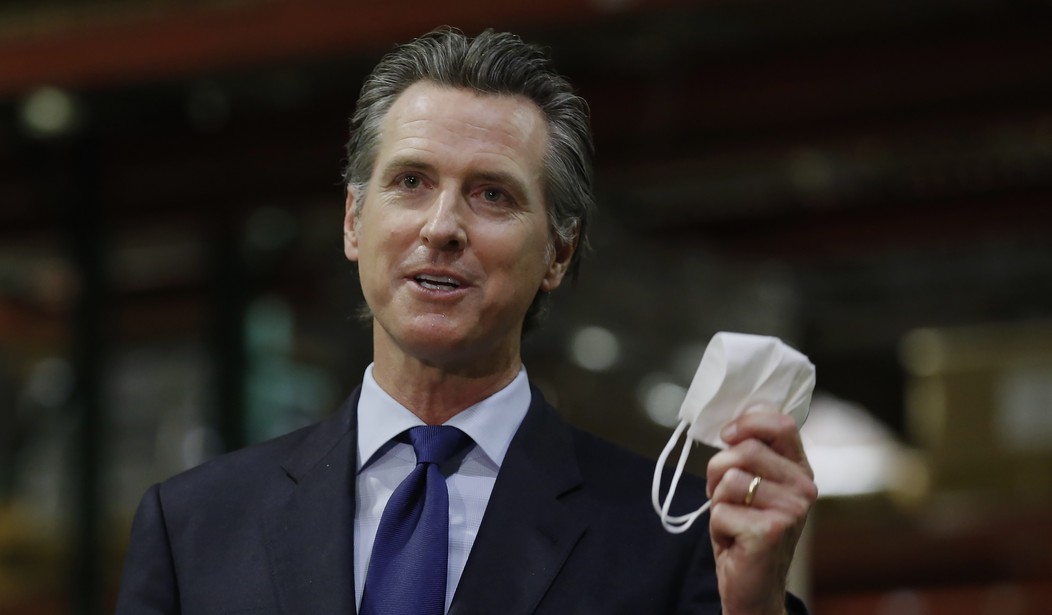In response to an unprecedented in modern times public health crisis, public officials have enacted restrictions both dramatic and draconian. The courts have generally sided favorably with the governors and mayors, concluding that the compelling public interest advanced is within the police and plenary powers afforded to state governments. The courts are applying varying levels of scrutiny as part of the process of judicial review and essentially concluding that the government is acting in good faith and within minimally restrictive or at least rational means to achieve its goals. The Supreme Court signified its general comfort with the approach of lower courts as it relates to state treatment of religious establishments, affirming an opinion by the Ninth Circuit that quoted from the “suicide pact” ruling of 1947 that suggests judges can apply a “little practical wisdom” when deciding where to temper the rigorous demands of our unique constitution.
This week, Governor Newsom of California reinitiated a suffocating lockdown, even more restrictive at the county level, in response to climbing coronavirus infection numbers in the wake of mass protests and the reopening of businesses. Talk of infection rates and jobs numbers and masks has allowed something more important to remain unsaid, something that has seemingly occurred without us realizing it, and is the cumulative result of the restrictions: California, and much of the country, has suspended the First Amendment. In America in 2020, and for the first time in American history, the First Amendment is suspended across a major percentage of American territory.
Yes, we can still be snarky with each other on Twitter, but your right to peaceable assembly in the time and manner of your choosing is suspended in over 30 states. Your right to freely exercise your religion is suspended in a similar number. This is about more than just the open disdain for religion shown by many blue state mayors and governors, it’s about hard limits on religious expression which naturally includes the ability to choose where one will worship and the freedom to choose when and whom to worship with.
America’s system of dual sovereignty allows for states to exercise powers that the federal government can not. We understand that civics lesson in real-time as evidenced by both the rigor of the restrictions in place and in different governor’s responses across our diverse, continental nation. But that system also does something else: it guarantees us certain rights, specific and few, that can not be abridged or nullified. Where that breaks down in practice, from lack of consensus over the full intent of the 14th Amendment to the guarantee and supremacy clauses, is the nightmare we’re living in right now.
Recommended
What we experienced in the spring of the Virus was a massive constitutional test between the few and important federal restrictions placed on states in our dually sovereign system and the right of states to self-determine in those rare areas of federal supremacy. We failed it. We failed the test of judicial review, which offered deference not suited to the potentially open-ended nature of the pandemic, and we’ve exposed a continued and apparent vulnerability of the Bill of Rights in practice as applied in this massive, nationwide experiment. The subjectivity inherent in determining a "compelling government interest" or the proportionality of the government action to secure that interest, or what constitutes the "least restrictive means" of realizing it, has left us vulnerable. That subjectivity allows flexibility and speed in the immediate throes or aftermath of a crisis, certainly, and the law is an imperfect tool for justice. But if the First Amendment can be so dramatically abridged this much court deference can not be part of a passing grade if the Constitution has any meaning left. Organized religion now exists in the spaces the state allows, and on that second, graver cultural test we get a similar and dismal mark.
We have to understand the above in the context of whatever a ‘new normal’ will look like, and not presume there will be an identifiable end to this crisis in clean phases or steps. We can even assume noble intent by most of the governors and mayors, and recognize that we remain free to criticize them. But a heartier skepticism must prosper. That’s because these restrictions will not always be in good faith, much like we witnessed the right to peaceful assembly be conditioned on political affiliation throughout June, creating a resentment that will be with us for years. And much like the punitive hate speech restrictions considered not long ago by California’s state legislators, or their proposal a few years back to regulate online speech. And just like those examples, we recall the abridging of the right to free speech on acres upon acres of college campuses, many of which will now operate virtually and likely carry those same restrictions with them to the home states of their students. While we’re at it let’s remember California’s treatment of the Second Amendment, and their recent potential blow against the 14th Amendment with the ballot initiative authorizing preferential racial discrimination and it almost becomes easier to ask: which rights in the Bill of Rights or later amendments remain guaranteed in California? Ask that question and recognize those same authorities now decide how and where Californians can worship.
Even if our media have forgotten this as a tripartite crisis – public health, economic, and civil liberty – we must not. The larger precedent that we are currently setting, which is the decommissioning of a First Amendment guaranteeing free exercise of religion and the right of peaceable assembly for an undetermined amount of time, must be confronted here in the first draft of history, not academically.

























Join the conversation as a VIP Member